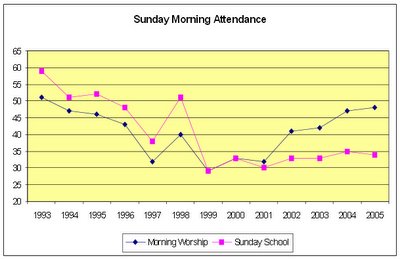What do we really say?
 No one will argue that an effective ministry must be a relevant ministry. Although meeting felt needs is an essential element of relevant ministry, the importance of communicating the gospel in ways that are culturally relevant cannot be overstated.
No one will argue that an effective ministry must be a relevant ministry. Although meeting felt needs is an essential element of relevant ministry, the importance of communicating the gospel in ways that are culturally relevant cannot be overstated.The Apostle Paul spoke of the importance of cultural relevance when he said, “I have become all things to all men so that by all possible means I might save some.” Paul was willing to adapt from one cultural context to the next. “To the Jews I became like a Jew, to win the Jews. To those under the law I became like one under the law. . . so as to win those under the law. . . To the weak I became weak, to win the weak (1 Cor 9:20-23).” Paul was willing to sacrifice his own personal preference and traditional expressions of worship all for the sake of the Gospel. Are we willing to do the same?
In his book “Radical Outreach,” George Hunter points out that “culture communicates” and language is only one of the “primary message systems” in a culture that communicates meaning (or blocks its communication). He mentions that there are at least nine other “primary message systems” that, rather than learning consciously like language, we “acquired” unconsciously. He mentions “space” ( i.e. standing too close to someone on an elevator) as a message system and how it relates to the cultural context of a community. Time & play (i.e. having fun) are also message systems that communicate.
He mentions another message system that I’ve always been aware of but never knew how to define - it’s called “materials.” Materials are “extensions” – such as clothes, furniture, buildings, weapons – for almost everything we do with our bodies; and that material, and how we use it, communicates.
So here’s the question: What does our uniform communicate? Is the uniform an effective tool for communicating the gospel? Is it relevant? Is it effective? Should officers be permitted to wear something other than the present uniform? What are your thoughts?



